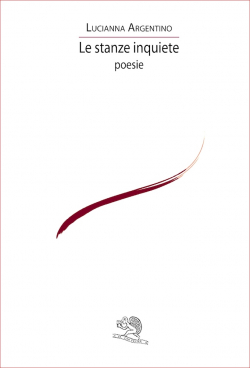Editorial
by Francesca Del Moro
One of the most iconic characters in Italian literature, Cosimo aka The Baron in the Trees, has not failed to enthrall poets. With his monologue in verse, Alberto Cini lingers on the change of perspective implied by the decision of living in the trees, and on the possibility of enjoying, from this high perspective, a more lucid vision on ourselves. The visionary poem by Alfonso Tramontano Guerritore insists on the search for a meaning, behind social conventions and behind the most trivial escape solutions. Cosimo sets himself free from any servitude, as showed in the scraping verses by Angelo Pini, where the branch is a perfect vantage point to unmask any reassuring certainty. Rita Stanzione chooses the voice of a Cosimo in love, giving her lines the fullness of a life in perfect harmony with nature. Finally, Daniele Barbieri looks slightly sideways at the baron perched on the branches, finding in his weird decision both a consolation and a confirmation of the apparently more trivial choice: becoming adult and accepting normality.
The Baron in the Trees
by Alfonso Tramontano Guerritore
They are caught between branches,
the planets escaped from the raid of the cosmos
fragments are raining everywhere and the world
doesn’t give up, doesn’t get back on its feet
that’s why I am searching through the foliage
even off-season there must be
the trace of a gem
a gem worthy of its name
under my violet woman
remaining with satellites
and flowers getting round her
If she doesn’t land I
don’t give up, compelled
by the eyes marked on an ordinary fruit
Do you want a getaway? A fairy-tale?
The revolution
can’t satisfy me
nor even the nothing that keeps all of you
firmly on the ground
Of no one
by Angelo Pini
Of no one
he is the humble servant
of serene blood
he is cold of his assassins
who are free to go away
from the light code
he spells out fears
manipulated by the mediocre
exiled by the nomad ghost
for a long time he mulls
on the huge flag
the nightmare of dry crumbs
he brings the new order
a blameless goodbye
a blow to the certainty
of easy words
I stay with almond trees and birches
by Rita Stanzione
I stay with almond trees and birches
and lianas of distances,
for a few gardeners
the wolf’s breast opens up
there are no tricks, that’s me
lost and found,
wonderful chords, the leaves
that you don’t grab
if they want, I appear
by the side of the wind
and swear I have seen all this:
I have seen her, sourer
and sweeter than creeping grass
wander around, as a dishevelled magpie
around my hummingbird thought
-God, what tenderness.
One on top of the other the days piled up
by Daniele Barbieri
one on top of the other the days piled up, Cosimo,
one by one the circles multipied
sprouted up in the hard meat of your shelter,
over time your refusal started to vanish,
you decided not to be, and you became that tale
against which from that uncertain moment our being
managed to grow up, your life out of sense
guaranteed us the value of that normality
that you rejected as meaningless, here is our debt,
Cosimo, it is precisely this way that we can be happy today
finding sense in denying your denying good sense
On top of a tree
by Alberto Cini
I stay on top of a tree
not because I savour the flavour
of these resinous branches
but just because I like to see
the world from above.
To look at the size of just one
of my passing bodies
high above the ground.
I stay on top of a tree
without clinging to the leaves
like I am a bird
filled with curiosity
and with little market value.
I stay on top of a tree
for a feeling of gratitude
and for the natural flexibility
of this stillness.
I stay on top of an Earth’s axis
without falling asleep
to see the passing
of a hourglass’s time
and feel the nostalgia
for my steps
that are my every morning
ancient identity.
Le stanze inquiete
by Lucianna Argentino
“We have people behaving like robots. Tomorrow we’re going to have robots behaving like people” recently declared John Cryan when he was still Deutsche Bank CEO. To the ferocity of such a statement we can oppose the book by Lucianna Argentino, Le stanze inquiete (Restless Rooms), defined by the author as an aesth-ethics of work, which draws together the vividness of her poetic language and the purpose of giving back to work its full dignity and, most of all, its humanity. When I grow up I want to be a register, a little girl says to her mother, confusing the thing with the person. Treating them as one, clarifies the poet, whose writing draws upon her eleven-year experience as a supermarket cashier, childhood in her is mistaken, whereas in others it is commonplace arrogance. The same arrogance of the CEO I have mentioned at the beginning to introduce these poems as the instrument for a political struggle. Unlike the majority of contemporary poetry dealing with work and written by workers, Lucianna’s book is not immediately perceivable as “militant”: it doesn’t represent an open statement against her working conditions nor expresses the yearning for a revenge. But, given the context where we live these days, her writing is a strong political action: within a society in which workers are generally seen as mere tools enslaved to the profit of companies and the comforts of ‘consumers’, Lucianna firmly asserts the human relevance of work. Those who enter a supermarket do it to buy food or other items they need, those who work at the register do it to earn a living but first of all they are persons, and their added value compared to a self-checkout is inestimable. Lucianna effectively let it come to light by showing us a human comedy that often makes us smile, touches us, especially when it deals with the relationship between children and adults, and sometimes tugs at our heartstrings. Even when it deals with diseases, humiliations or terrible griefs such as the loss of a child, her writing never gives in to sentimentalism but is capable of arousing emotions consistently remaining neat, minimal, well-balanced. The poet draws her stories from her daily encounters with customers at the register and she just needs to mention a few details, a few words addressed to her or conversations caught on the fly to make us peep in the “restless rooms”, namely the lives of these persons. During her working day, Lucianna is always intent on listening, on creating empathy: as she informs us by quoting Spinoza at the beginning of the book, she is striving to “understand human things”. The brief and often repeated contacts with each customer allow her to establish relationships, exchange warmth, find food for thought and questions to ask herself. Conversely, sometimes she has to confront the indifference of those who keep their eyes down, don’t stop talking on the phone as they put the shopping on the counter, leave without saying goodbye and complain about the slightest thing. But, for better or worse, every single one of these encounters is something precious that Lucianna chooses to share with us encouraging us to take a peek at other people’s rooms to discover something about ourselves and in the end opening her own room to us. She does not hide the fatigue, the frustration she often feels during her repetitive days, her doubts and uncertainties, the effort to make room for poetry. What we get by reading this book is a very strong sense of humanity, tenderness, sharing, the loud declaration of the value of each person we happen to meet in our life. Even if it’s just for a few minutes, even if there is a plexiglas screen between us and the others, even if we are chased by the urging hours of our pitiless time.
Lucianna Argentino
Le stanze inquiete
La Vita Felice, 2016

